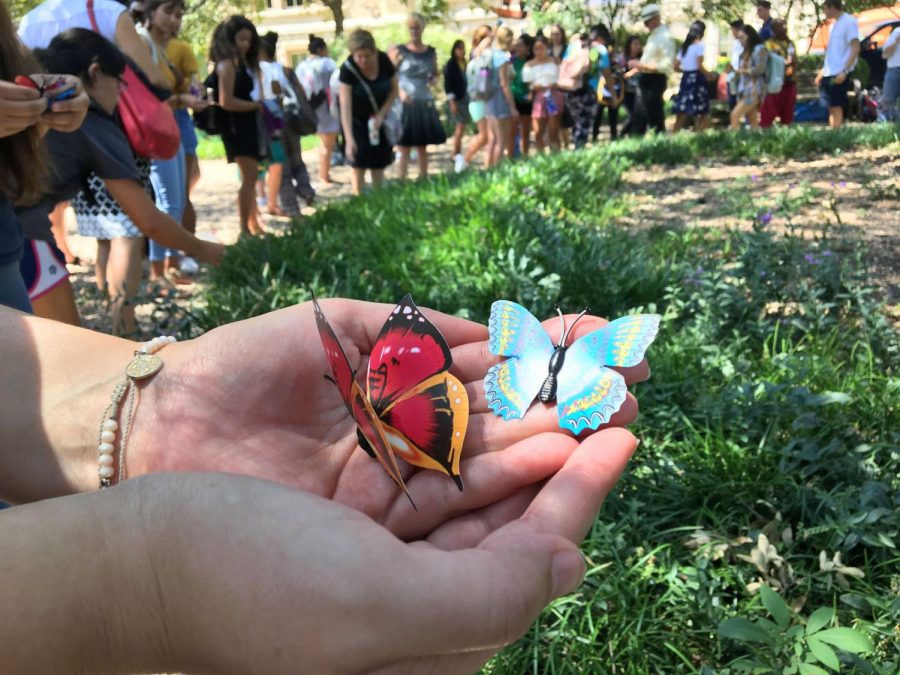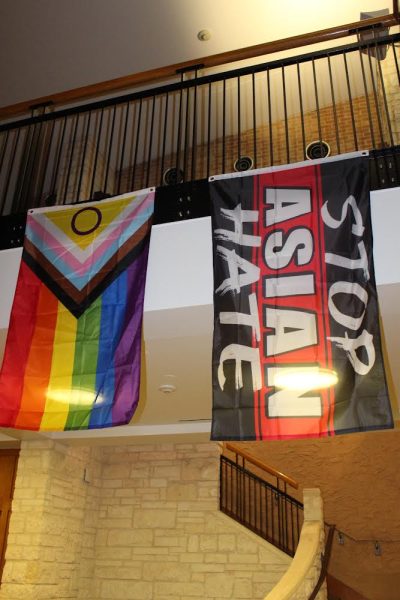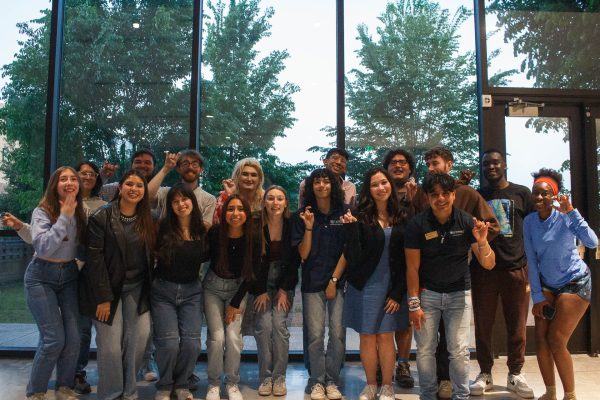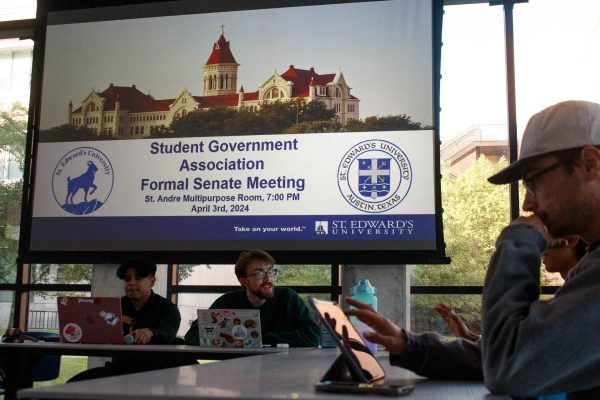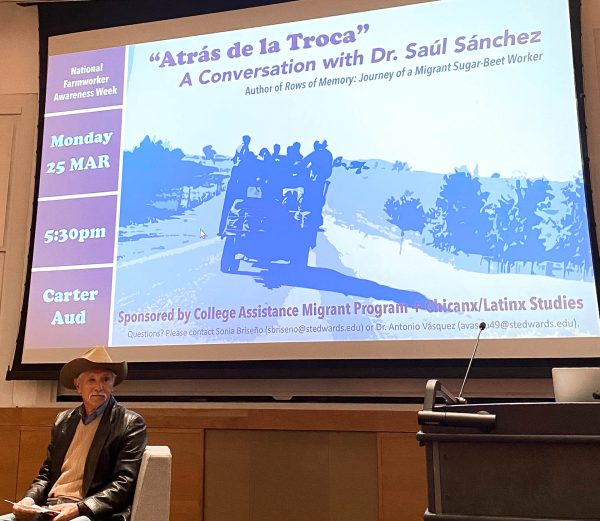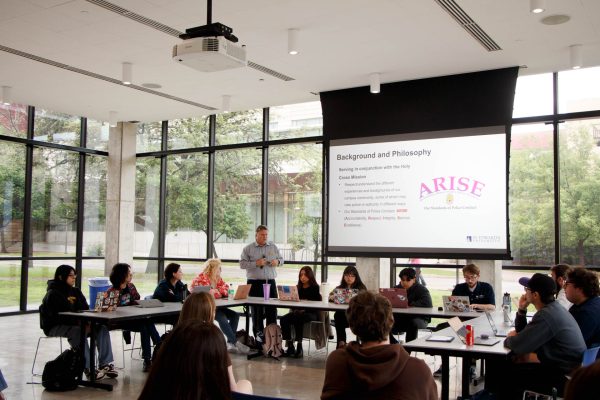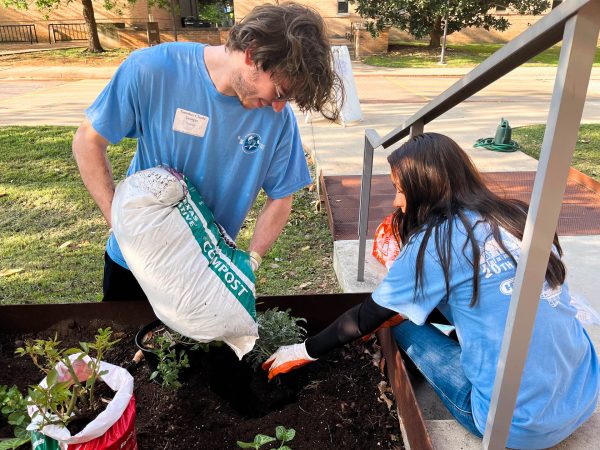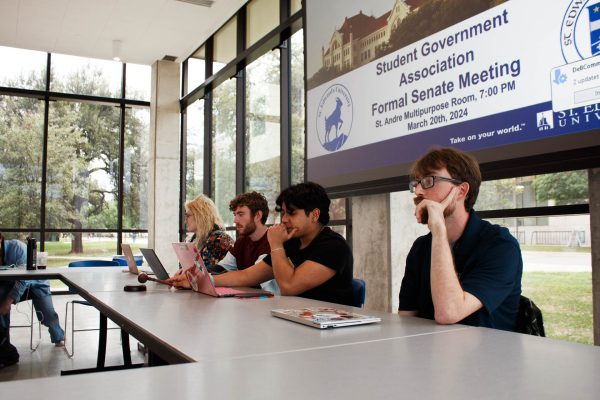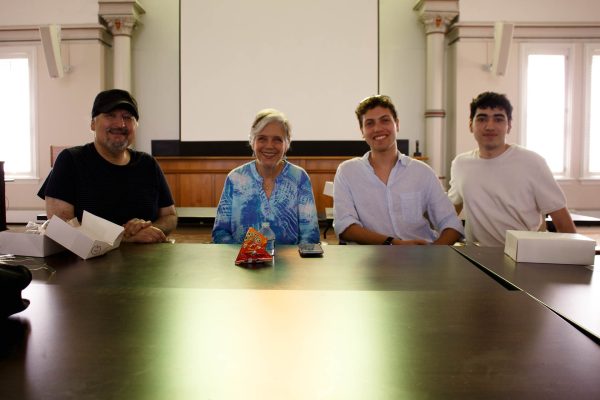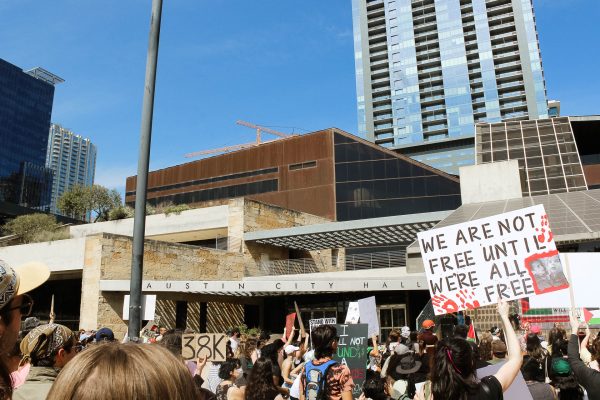‘Dehumanization’ at forefront of DACA students, allies’ collaborative
Monarchs on the Hilltop hosted the St. Edward’s DACA Solidarity Action at Sorin Oak on Sept 15. This was one of many pro-DACA events that have taken place at St. Edward’s University since Trump announced he would be removing the Deferred Action for Childhood Arrivals (DACA) program.
After a group prayer, junior DACA student Josue Damian-Martinez performed a cover of a song by Joan Baez. The symbolic lyrics, “no nos moverán como un árbol firme junto al río,” compared the strength of the DACA community to a tree next to a river.
Damian-Martinez was one of the many students that shared words of encouragement along with a feeling of frustration toward being dehumanized.
“I’ve been in the movement for a long time and it’s incredible to see the community come together,” junior DACA recipient, Jose Garibay said. “We can and we have the right to do something.”
Chanting in support of his family members and the DACA community, Garibay said, “I am somebody and I deserve full equality. Right here, right now.”
Other attendees took the microphone to raise attention to the unspoken struggles experienced by many undocumented immigrants and DREAMers, a word used to describe DACA recipients and those who fought for the passing of the Development, Relief, and Education for Alien Minors Act.
“None of the families planned to come here,” professor Arcelia Hernandez said to the crowd. “They are literally willing to die to have the lives that you and I have.”
Hernandez spoke about the separation of families as “psychological warfare” when those fleeing their home countries turn themselves into border patrol.
Elaborating, Hernandez said children and parents are separated and placed into detention centers where they are usually deported. Additionally, she said the Trump Administration taps into that fear by incarcerating families before they are even given a chance.
“This is not the America I believe in,” Hernandez said.
There are about 800,000 DACA recipients that face an uncertain future. In order to qualify for DACA, recipients must have arrived in the United States before the age of 16, have no criminal record, be enrolled in high school or have a high school diploma or equivalent. Many entered when they were still children and were brought by their parents or other family members.
Senior Jacqueline Gonzalez shared memories of when a family member was brought to the U.S. illegally at a young age without knowledge of what was happening. Other students shared their personal experiences of being brought by their parents as young as the age of three.
“Be mindful not to start demonizing the parents,” junior Ashley Guevara said. “They did it to find a better life for themselves and their family.”
Garibay also shared praise for the sacrifices his parents, like many others, made.
“I think the word ‘Dreamers’ is beautiful but I think that word should be used for parents,” Garibay said. “They’re the ones who came [to the United States] for their family.”
Gonzalez also expressed her concern of people being unaware of how close they may be to someone affected by DACA being rescinded.
“Sometimes we forget that these issues are alive and are right next to us,” Gonzalez said. “It is important to share your story; no one is going to know it if you don’t share it.”
Gonzalez added that people who do not feel affected live in “bubbles,” and it is important for those who are affected to speak out about their experiences to break those bubbles.
“It affects us all,” Alex Barron, director of the Freshman Studies Program said. “Instead of [students] being focused, they’re spending a lot of time being in fear.”
The Solidarity Action was followed by a T-Shirt printing held at the Fine Arts Department. The “BYO T-Shirt” let participants select from the hashtags “#DefendDREAMers,” “#DreamActNow” and “#StandWithDREAMers” to have screen-printed on their shirt.
“It’s a way for those who support DACA to show it without necessarily having to start a conversation,” Alex Robinson said, foundation coordinator of the Department of Visual Studies. “We have to use our voice for those who can’t.”
Joseph Ramirez, coordinator of the DACA Solidarity Action and founder of Monarchs on the Hilltop, said the organization plans to host more events like this along with their monthly meetings.
“With the [political] climate it is important to have a safe space for the community,” Ramirez said. “I also feel like the [St. Edward’s] community should care mostly because we are people.”
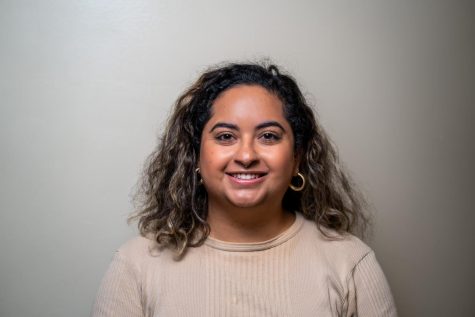
I am Myrka Moreno - Digital Media Management, Journalism minor and Social Media Editor at Hilltop Views. This is my senior year at St. Edward's University....


